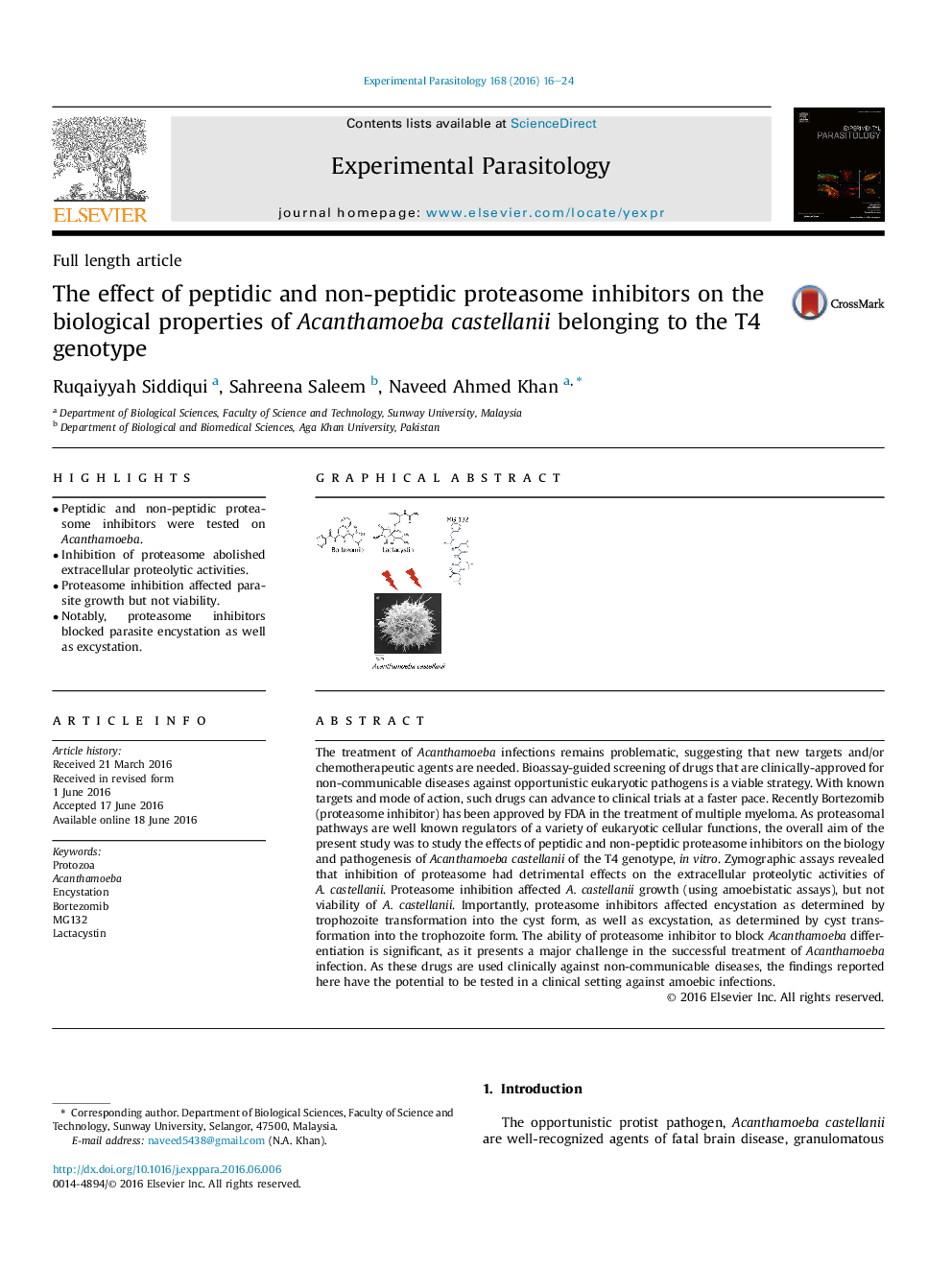| Article ID | Journal | Published Year | Pages | File Type |
|---|---|---|---|---|
| 4370908 | Experimental Parasitology | 2016 | 9 Pages |
•Peptidic and non-peptidic proteasome inhibitors were tested on Acanthamoeba.•Inhibition of proteasome abolished extracellular proteolytic activities.•Proteasome inhibition affected parasite growth but not viability.•Notably, proteasome inhibitors blocked parasite encystation as well as excystation.
The treatment of Acanthamoeba infections remains problematic, suggesting that new targets and/or chemotherapeutic agents are needed. Bioassay-guided screening of drugs that are clinically-approved for non-communicable diseases against opportunistic eukaryotic pathogens is a viable strategy. With known targets and mode of action, such drugs can advance to clinical trials at a faster pace. Recently Bortezomib (proteasome inhibitor) has been approved by FDA in the treatment of multiple myeloma. As proteasomal pathways are well known regulators of a variety of eukaryotic cellular functions, the overall aim of the present study was to study the effects of peptidic and non-peptidic proteasome inhibitors on the biology and pathogenesis of Acanthamoeba castellanii of the T4 genotype, in vitro. Zymographic assays revealed that inhibition of proteasome had detrimental effects on the extracellular proteolytic activities of A. castellanii. Proteasome inhibition affected A. castellanii growth (using amoebistatic assays), but not viability of A. castellanii. Importantly, proteasome inhibitors affected encystation as determined by trophozoite transformation into the cyst form, as well as excystation, as determined by cyst transformation into the trophozoite form. The ability of proteasome inhibitor to block Acanthamoeba differentiation is significant, as it presents a major challenge in the successful treatment of Acanthamoeba infection. As these drugs are used clinically against non-communicable diseases, the findings reported here have the potential to be tested in a clinical setting against amoebic infections.
Graphical abstractFigure optionsDownload full-size imageDownload as PowerPoint slide
